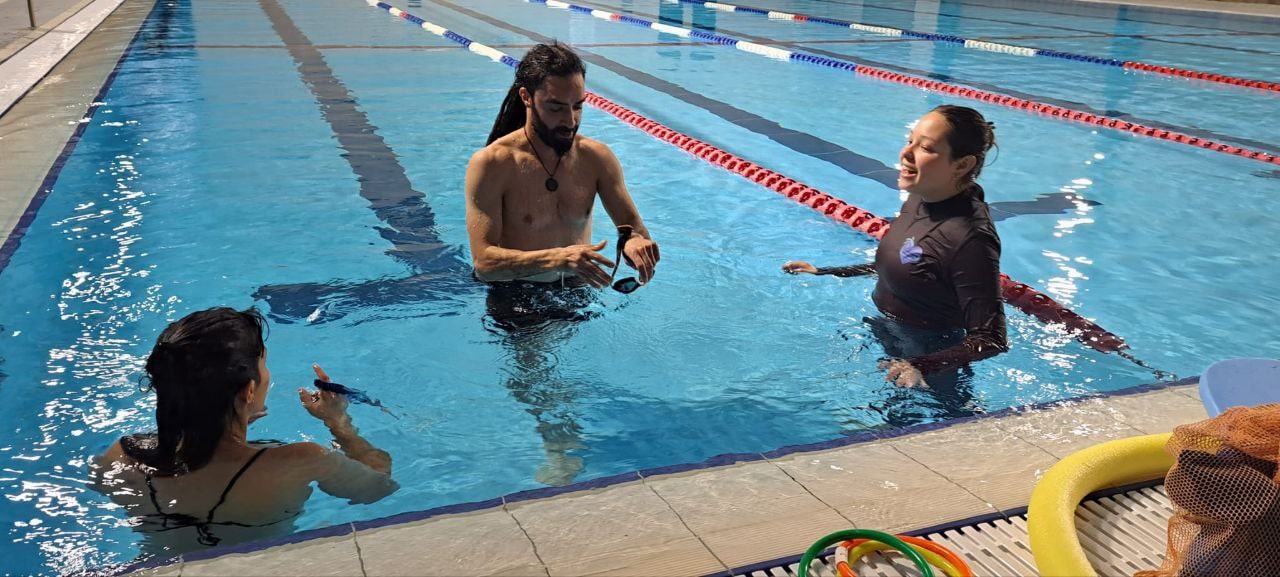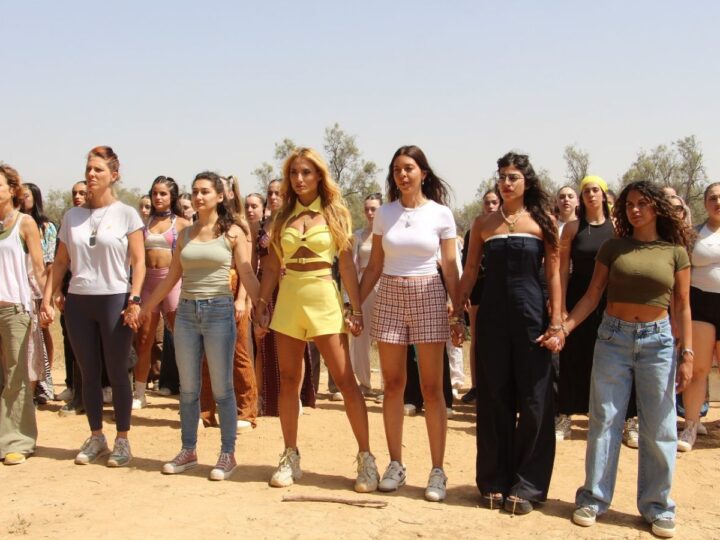Swimming is known to offer many physical health benefits. Some research has shown that swimming is also a great way to soothe your mind. Regular swimming helps reduce stress and anxiety, while cold-water swimming has even been found to be an effective way to treat depression.
Trauma specialists working with survivors of the October 7 Hamas attacks on Israel have suggested that in the immediate aftermath, activities like swimming may be even more relevant than traditional psychological treatment.
“The hardest part is to get the people who are traumatized to come. It’s tough to get these people to commit at a time like this,” Ella Azaria, who heads the Swimming Toward Resilience project, tells ISRAEL21c.
From one-day course to full-time school
The unique swim school started out as a day-long swimming course led by Hebrew University of Jerusalem (HUJI) biological chemistry researcher Ayelet Rahat. (In 2020, she and her HUJI colleagues made headlines for developing a new test for Covid-19.)
Rahat decided to test the powers of swimming while volunteering at Ein Gedi near the Dead Sea, where evacuees from Gaza border communities Sderot, Kibbutz Holit and Kibbutz Be’eri were staying.
While volunteering, Rahat noticed that evacuees, primarily children, were lacking a routine. So, she teamed up with two other volunteers at the site — educator Avishai Zipkin and former Israeli national water polo team member Yahel Murvitz Lahav.
“They tried it out as a pilot for one day, and it was a success. Then, they tried it out for a week, then for a month, and so on,” explains Azaria.
The Jewish Agency for Israel donated the initial funds to help the school stay afloat.
As the days progressed, the small initiative became a full-fledged swim school that required more volunteer swim instructors. That’s when Azaria and fellow instructor Hadar Dikstein came on board.
“I saw on Facebook that they were looking for volunteer instructors, and hopped on the opportunity,” says Azaria, who has been working as an instructor for the past six years. For the seven years prior she swam professionally with the Maccabi Sport Association.
The new regime
When Rahat and Lahav left Ein Gedi after three months to return to their regular lives, the rest of the volunteers wanted to continue the program “because some evacuees, especially those from Be’eri, were going to be here for many more months.”
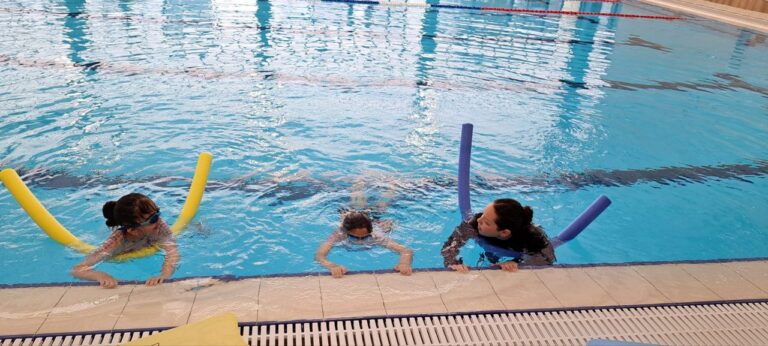
Azaria and Dikstein became the new co-directors of the swim school. They were later joined by an additional volunteer instructor to help with the workload.
The school stages lessons for children two times a week. Once a week there are lessons specifically for children for disabilities. Adults can swim at the school up to four times a week.
“We’re seeing up to 50 people a day at the school,” Azaria tells ISRAEL21c.
Does it work?
Azaria says it’s difficult to gauge the lessons’ effects on the evacuees because they are still in the midst of processing the trauma.
“They don’t talk to us much,” she says, “and when we ask them how they are, they just say, ‘We’re okay.’ But we know that they’re not.”
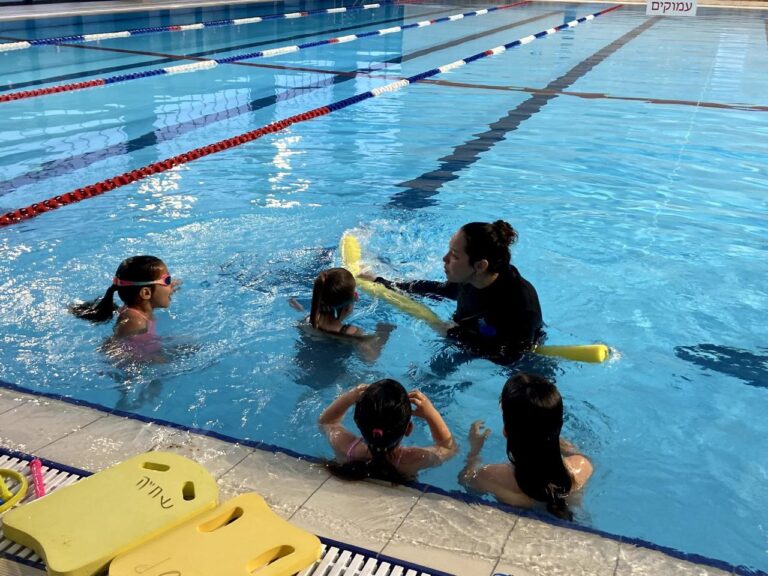
Azaria says some of the adults tell them the swimming lessons are one of the few things they look forward to during the week.
“Most of these people don’t work. They have breakfast, lunch and dinner at the hotel, and they have swimming lessons. That’s it.”
A swimming community
Yanay Elbaz agrees with this sentiment.
Elbaz was evacuated on October 7 with his daughter and ex-wife from Kibbutz Holit, and has been staying in Ein Gedi ever since.
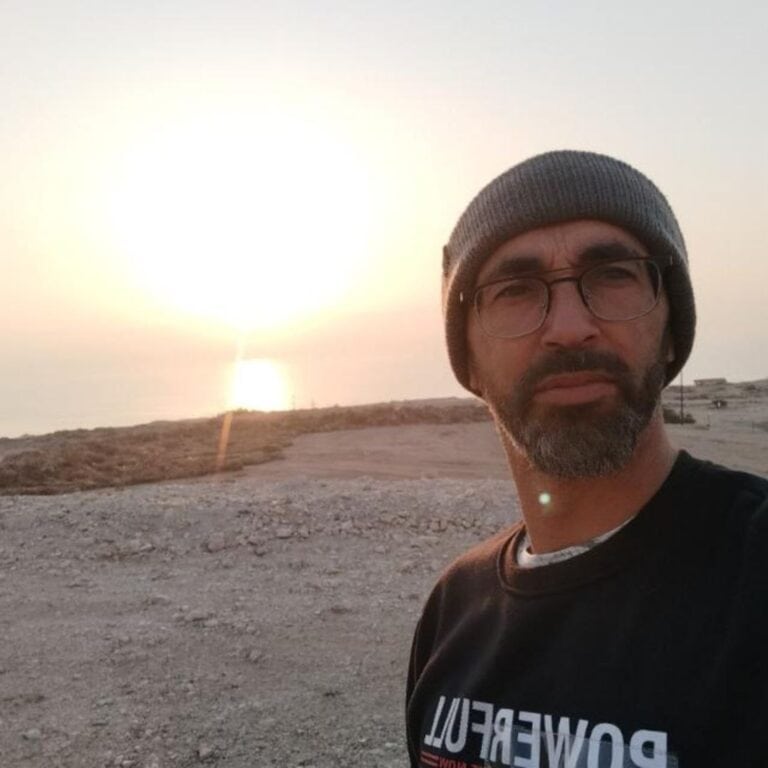
“Back in Holit, all the local kids were going to swimming lessons twice a week,” explains Elbaz.
Elbaz brought his daughter, Talia, for a tryout session at the school, and quickly realized it was going to become part of their new routine.
Since October 7, Talia has been very anxious. “We saw the effects of that on her. But each time she enters the pool, she comes out much calmer.”
The lessons also helped the evacuees bond with each other socially. “It was sort of a support group,” he laughs.
Elbaz adds that attending the swim school also allowed his children to be exposed to other cultures — something a quiet life in a kibbutz normally lacks.
“My daughter made friends with some kids of Ethiopian descent, who at first were afraid to step into the water. There was an 80-year-old Ethiopian woman who went into the pool for the first time in her life.”
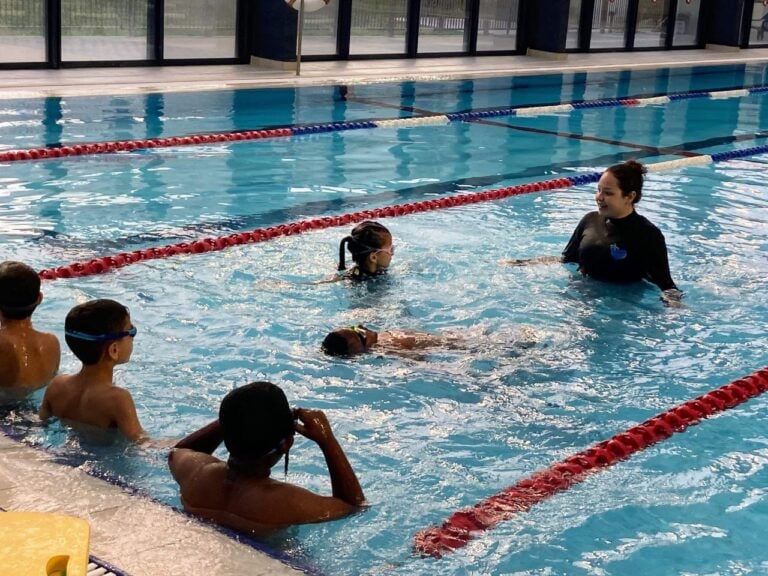
The Elbaz family was scheduled to move to the city of Rehovot at the start of March.
“The school has already organized for us to continue our lessons there. This school will have an extension beyond [Ein Gedi]. I have no doubt,” he says.
For more information, click here.




